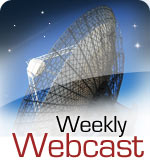The Heart
I have a patient, an eight-year-old little girl who received the heart of a murdered ten-year-old girl. Her mother brought her to me when she started screaming at night about her dreams of the man who had murdered her donor. She said her daughter knows who it was.| Audio Options: | MP3 |
The Heart
Those who reject the literalness of the Scriptures continue to be thoroughly trounced by newly discovered truths. As far as the camp of unbelievers is concerned, this happens at an alarming pace. Whether it’s their rejection and ridicule of Biblical pronouncements such as man from dirt, or one common Adam and Eve, or Noah’s global flood, or fiery flying serpents, or a 6,000-plus-year-old universe, the Word of God continues to stand undefeated. God’s truth never changes. Embrace it and live everlasting. Click onto "Further With Jesus" for instant entry into the Kingdom of God. NOW FOR TODAY’S SUBJECT.
GOD SAID, Matthew 15:19:
For out of the heart proceed evil thoughts, murders, adulteries, fornications, thefts, false witness, blasphemies:
GOD SAID, Proverbs 23:7:
For as he thinketh in his heart, so is he:
GOD SAID, Proverbs 4:23:
Keep thy heart with all diligence; for out of it are the issues of life.
GOD SAID, Genesis 6:5:
And God saw that the wickedness of man was great in the earth, and that every imagination of the thoughts of his heart was only evil continually.
MAN SAID: The heart has no cognitive skills. The Bible’s accounts are to be taken metaphorically, if at all, and certainly not to be taken literally.
Now THE RECORD. Does the heart really think? Could the Scriptures that refer to the attributes of the heart 884 times be accurate in the most literal form? Of course the answer is yes!
The following excerpts are from Deadly Emotions, by Dr. Don Colbert, published in 2003:
How can this be? In recent years neuroscientists have discovered that the heart has its own independent nervous system. At least forty thousand nerve cells (neurons) exist in a human heart. That’s the same amount found in various subcortical (beneath the cerebral cortex) centers of the brain. In other words, the heart is more than a mere biological pump. These abundant nerve cells give it a thinking, feeling capability.
The heart’s "brain" and the nervous system relay messages back and forth to the brain in the skull, creating a two-way communication between these two organs. In the 1970s, physiologists John and Beatrice Lacey of the Fels Research Institute found a flaw in current popular thinking about the brain. The popular approach was to assume that the brain made all of the body’s decisions. The Lacey’s research indicated otherwise.
Specifically, these researchers found that while the brain may send instructions to the heart through the nervous system, the heart doesn’t automatically obey. Instead, the heart seems to respond at times as if it is "considering" the information that it has received. Sometimes when the brain sends an arousal signal to the body in response to external stimuli, the heart speeds up, as might be expected. On other occasions, however, the heart slows down while all other organs are aroused as expected.
The selectivity of the heart’s response suggested to the Lacey’s that the heart does not mechanically respond to the brain’s signals. Rather, the heart seems to have an opinion of its own, which it communicates back to the brain.
What was even more interesting in the Lacey’s research was the fact that the messages that the heart sent to the brain seemed to be ones that the brain not only understood but obeyed. In effect, heart and brain hold an intelligent dialogue. At times the heart submits to the brain, and on other occasions the brain seems to submit to the heart. The messages from the heart appear to be capable of affecting an individual’s behavior.
Again, Dr. Colbert:
The most powerful channel of heart communication to the body, however, is through the heart’s electromagnetic field, which is about five thousand times greater in strength than the electromagnetic field the brain produces.
Scientists are able to detect electronic information the heart sends through a brain-wave test called an electroencephalogram (EEG). Gary Schwartz and his colleagues at the University of Arizona found in their experiments that neurological or other established communication pathways could explain the complex patterns of cardiac activity in our brain waves. In other words, acting somewhat like military code breakers in World War II, these researchers had to learn, "the language of the heart." Their data showed the existence of direct energetic interaction between the electromagnetic field of the heart and that produced by the brain.
Finally, Dr. Colbert writes:
Author and scientist Paul Pearsall described an incident that occurred when he was speaking to an international group of psychologists, psychiatrists, and social workers in Houston, Texas. He was talking about his belief in the central role of the heart in both physical and spiritual life. A physician came up to the microphone to share her story. This is what she told Dr. Pearsall and the others present in that auditorium:
I have a patient, an eight-year-old little girl who received the heart of a murdered ten-year-old girl. Her mother brought her to me when she started screaming at night about her dreams of the man who had murdered her donor. She said her daughter knows who it was. After several sessions, I just could not deny the reality of what this child was telling me. Her mother and I finally decided to call the police and, using the descriptions from the little girl, they found the murderer. He was easily convicted with the evidence my patient provided. The time, the weapon, the place, the clothes he wore, what the little girl he killed had said to him . . . everything the little heart transplant recipient reported was completely accurate. [End of quotes]
You can be certain that new research forthcoming will expand dramatically on man’s understanding of the thinking heart. According to the scriptures, the heart thinks and deals in matters that we respond to emotionally. The old axiom “love is blind,” meaning the heart makes choices that a person in his rational mind would reject, is obviously true. The heart has a mind of its own.
God’s Word speaks of the reins and the heart numerous times. Noah Webster’s 1828 American Dictionary of the English Language defines reinsas "In scripture, the inward parts; the heart, or seat of the affections and passions." Psalms 26:2:
Examine me, O LORD, and prove me; try my reins and my heart.
As the reins of the horse in the hands of its rider give the rider the mastery over the horse’s paths, so our reins, our emotions and desires surrendered into the hands of God assure a glorious, eternal outcome.
Thousands of years before modern science began to understand the truth of the thinking heart, God said "Yes." This is again proof that God is, and that He is a rewarder of those who diligently seek Him.
GOD SAID, Matthew 15:19:
For out of the heart proceed evil thoughts, murders, adulteries, fornications, thefts, false witness, blasphemies:
GOD SAID, Proverbs 23:7:
For as he thinketh in his heart, so is he:
GOD SAID, Proverbs 4:23:
Keep thy heart with all diligence; for out of it are the issues of life.
GOD SAID, Genesis 6:5:
And God saw that the wickedness of man was great in the earth, and that every imagination of the thoughts of his heart was only evil continually.
MAN SAID: The heart has no cognitive skills. The Bible’s accounts are to be taken metaphorically, if at all, and certainly not to be taken literally.
Now you have THE RECORD.
References:
King James Bible
Colbert, D., M.D., Deadly Emotions, Thomas Nelson Publishers, Nashville
Additional Audios
- The 6,000s (Part 4: Adam & Eve Found; They Are Young!)
- Fasting and Prayer--The Power that Breaks the Yoke
- Meditation Rebuilds Grey Matter in 8 Weeks (My Soul is Continually in My Hand)
- The Worms from Hell
- The Truth Remains True — Pigs — Lotís Wife — Flush It
- Why the Blood of Jesus?
- Dead Men Talking About Life After Death
- Heaven--Looking for Proof? (Let There Be No Doubt!)
- Don't Feed the Devils
- Complaining Turns Brain to Mush
- Wicked Thoughts and How to Deal with Them
Power Verse
Acts 1:8 (KJV)
But ye shall receive power, after that the Holy Ghost is come upon you: and ye shall be witnesses unto me both in Jerusalem, and in all Judea, and in Samaria, and unto the uttermost parts of the earth.







